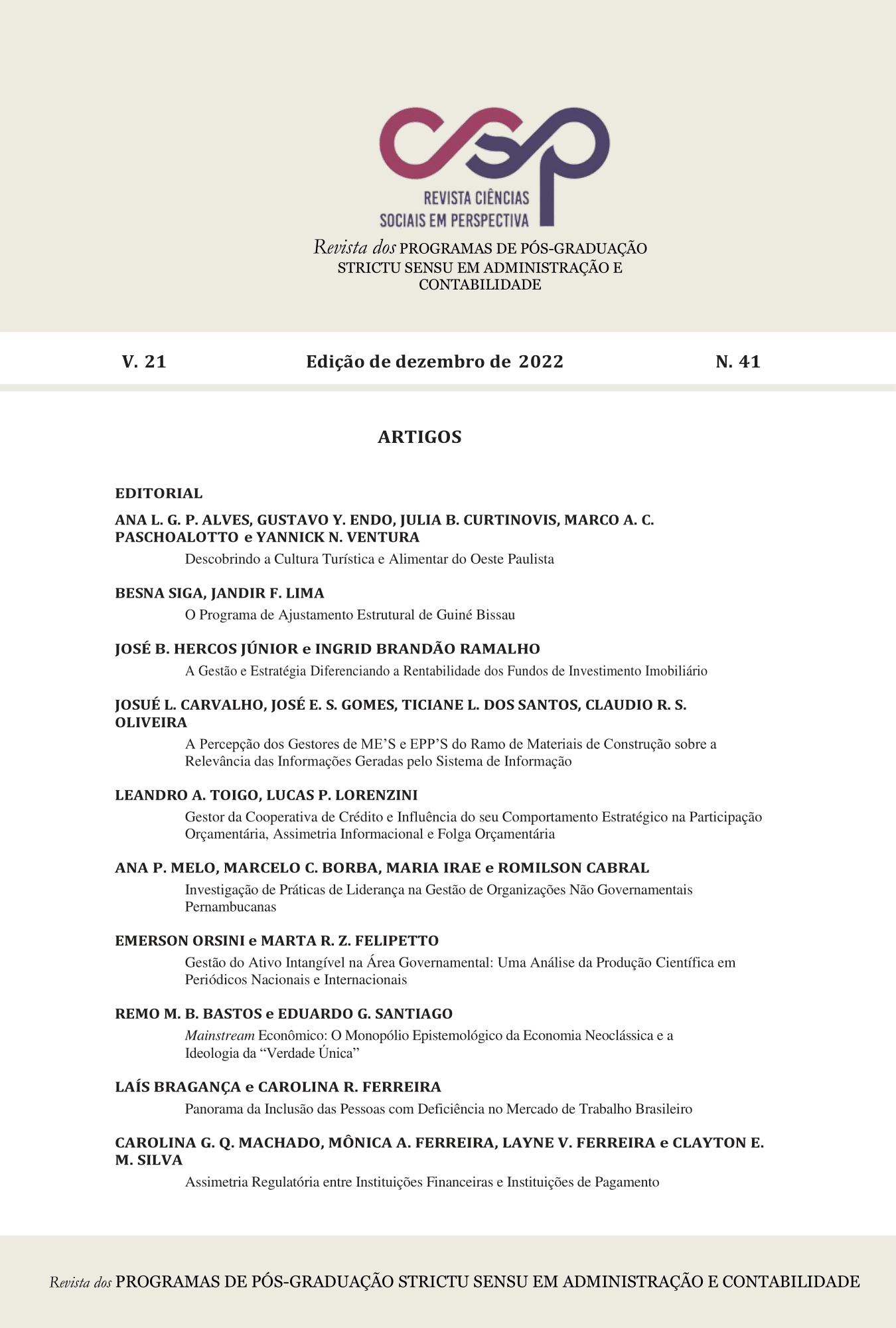Gestão e estratégia diferenciando a rentabilidade dos fundos de investimento imobiliário
DOI:
https://doi.org/10.48075/revistacsp.v21i41.28981Resumo
O objetivo deste trabalho foi verificar se gestão estratégia são determinantes para o desempenho dos fundos de investimento imobiliário (FII) no Brasil. Este trabalho é descritivo, quantitativo, aplicado e se ampara em pesquisa bibliográfica e documental. Foi utilizado o modelo estatístico ANCOVA, que é uma mistura de regressores quantitativos e qualitativos. O levantamento dos dados para esta pesquisa contemplou o ano de 2019, período caracterizado por variação positiva na atividade econômica (PIB) do país, em 1,1%; (b) Valorização do Ibovespa, que representa o desempenho médio do mercado de ações, em 31,58%; e (c) Valorização do IFIX, que representa o desempenho médio das cotações dos fundos imobiliários, em 35,98%. O fator “gestão” não diferenciou os fundos mais rentáveis dos menos rentáveis o que contraria os resultados obtidos por Kaushik e Pennathur (2012), sendo que estes utilizaram dados de FII dos EUA. Já a estratégia de “Renda” apresentou coeficiente diferencial, positivo e estatisticamente significativo, semelhante ao resultado obtido por Barreto (2016). Isto demonstrou que o fator “estratégia” diferencia fundos mais rentáveis dos menos rentáveis. Para estudos futuros, sugeriu-se a ampliação da amostra, com a adição de outros anos e a utilização do modelo estatístico no formato “painel”.
Downloads
Downloads
Publicado
Como Citar
Edição
Seção
Licença

Este trabalho está licenciado sob uma licença Creative Commons Attribution-NonCommercial-ShareAlike 4.0 International License.
Aviso de Direito Autoral Creative Commons
Política para Periódicos de Acesso Livre
Autores que publicam nesta revista concordam com os seguintes termos:
1. Autores mantém os direitos autorais e concedem à revista o direito de primeira publicação, com o trabalho simultaneamente licenciado sob a Licença Creative Commons Attribution que permite o compartilhamento do trabalho com reconhecimento da autoria e publicação inicial nesta revista.2. Autores têm autorização para assumir contratos adicionais separadamente, para distribuição não-exclusiva da versão do trabalho publicada nesta revista (ex.: publicar em repositório institucional ou como capítulo de livro), com reconhecimento de autoria e publicação inicial nesta revista.
3. Autores têm permissão e são estimulados a publicar e distribuir seu trabalho online (ex.: em repositórios institucionais ou na sua página pessoal) a qualquer ponto antes ou durante o processo editorial, já que isso pode gerar alterações produtivas, bem como aumentar o impacto e a citação do trabalho publicado (Veja O Efeito do Acesso Livre).
Licença Creative Commons
Esta obra está licenciada com uma Licença Creative Commons Atribuição-NãoComercial-CompartilhaIgual 4.0 Internacional, o que permite compartilhar, copiar, distribuir, exibir, reproduzir, a totalidade ou partes desde que não tenha objetivo comercial e sejam citados os autores e a fonte.





